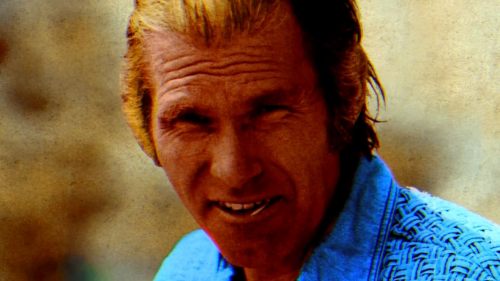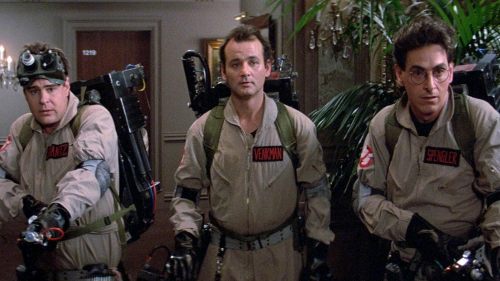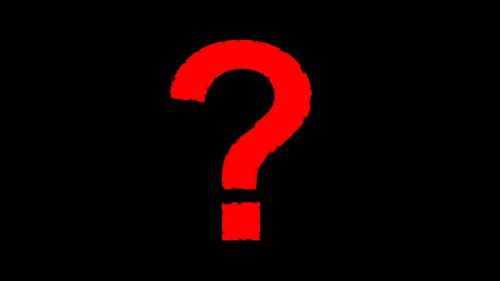Collins’ Crypt: Hi, Just Wanted To Note I Loved HILL HOUSE Too
One of the longest running horror-themed film festivals here in LA is Shriekfest, which is usually held in October and programs independent genre fare over three packed days. When I had the time, energy, and childless existence I'd go for pretty much the entire lineup, and not because I loved all the movies - like any fest, I'd seen a number of stinkers. No, I watched as much as I could because the films were often truly independent efforts from folks who were making their debut, and even the best had little chance of being picked up for wide distribution because they didn't fit the idea of "major release". So it was exciting to see these oddball efforts, even if I didn't love them, because you never knew when the person who made them might go on to bigger and better things.
Indeed, during 2011's festival I dragged myself there to see a film that sounded kind of promising, but would have had to knock my socks off to really grab me, as I was exhausted from the previous evening (into morning)'s all-night horror show at the New Beverly. Luckily, that film DID really wow me, and I made it a point to look for whatever its young filmmaker made next. Thankfully I didn't have to look too hard, as the film was Absentia, and the filmmaker was Mike Flanagan, who followed it up with Oculus, a wide studio release that paved the way for even bigger gigs. And he knocked my ass flat with Hush and Gerald's Game, with his other films in between being solid as well. At this point, it's safe to say that as long as I see his name attached, I'll be excited for whatever he's involved with for a long time (his next film is Doctor Sleep, a Stephen King adaptation, so it's doubly enticing).
But I'm also a slow watcher, which is why even though most folks are probably already in "Where's season two?" mode I just finished The Haunting of Hill House, his ten-episode event series for Netflix that premiered in October. To be fair, that's incredibly quick for me for a Netflix show - it took me nearly two years to finish the first season of Stranger Things, and I STILL haven't finished the first season of Daredevil (based on the only Marvel character I still read every month). Due to October's usual nuttiness I didn't get to see the first one until October 25th and I just finished it last week, but for me, taking only four weeks to watch a full season is comparatively binge-watching it. I probably could have gotten through it sooner, but I like to let things simmer a bit, and I wanted to watch as much of it as I could at home, after my kid had gone to sleep and I could enjoy its sound design and visuals properly (as opposed to on a more convenient laptop during lunch breaks).

And it deserved that much respect, I assure you. If you haven't gotten around to it yet, I can't stress enough how you need to give it a look. It might actually be Flanagan's most accomplished work yet - and let's not forget he's got a damn good track record. If I were to rank his movies, I'd probably have Ouija: Origin of Evil at the bottom, and that's a movie I described as "worth seeing" in my review, weighed down more by its connection to an inferior film than anything Flanagan did or didn't do. And if you're new to the filmmaker and want to go through his output, you'll find that even though it's a sequel (well, prequel) to someone else's movie it's very much in his wheelhouse, as it - like almost all of his movies - deals with how people (specifically, families) process their grief and how that energy can manifest in terrifying ways. In Absentia (still my favorite of his features), it's about a woman dealing with her husband, who disappeared long enough ago for the authorities to declare him dead even though there's no body, in Before I Wake a pair of grieving parents adopt a boy who is wrestling with his own loss, and in his Ouija we skip the dull teens of the original and focus on a mother and two daughters who are working through the loss of her husband/their father. And then they all have to deal with ghosts and other supernatural entities.
For Hill House, based on Shirley Jackson's novel of the same name (the two previous adaptations simply went with The Haunting), Flanagan took this theme and ran with it, centering his story on five siblings who represent different stages of grief. Oldest brother Steven is denial, then Shirley is anger, Theo is bargaining, Luke is depression, and his twin sister Nell was acceptance - and that's the same order they were born, for good measure (Luke being a few minutes older than Nell comes up more than once, as if to clarify), with the grief being the mysterious death of their mother when they were children. As with Oculus, the show tells the complete story in parallel timelines: their childhood experience in the Hill House sometime in the early '90s, and their very messed up adult lives in the present. Each of the siblings gets an episode more or less to themselves, as current day events trigger memories of their childhood (think Lost), with those memories filling in pieces of the puzzle of how their mother (Carla Gugino) ended up as the latest tragic resident of their mysterious new house.
The format also allows our sympathies to change again and again as we see things from different perspectives. For example, in the first episode, Steven (Michiel Huisman) comes home and finds his junkie brother Luke (Oliver Jackson-Cohen) stealing some of his valuables, presumably to sell for drug money - but when it's Luke's turn in the spotlight a few episodes later, we find out that he's actually clean (just looking like shit from detoxing) and needs the money to get a hotel room to keep a friend off the streets before *she* lapses. Some of these "from their point of view" reveals are heartbreaking, particularly when they involve youngest sister Nell, who (spoiler for the first episode) as an adult ends up committing suicide in the house, which we are led to believe none of them had visited since their father removed them that one night in 1992. Both timelines are equally compelling; Flanagan smartly avoids too many moments that rely on us fearing that one of the children may be harmed or worse, since we know they're alive and intact in the present, and instead builds up the mystery of the house itself and also the fate of their mother, while saving the more menacing moments for the present day.

But it's not a jump scare fest even in those scenes - this is very much a drama first and a genre show second. Flanagan and his writers use their ghosts sparingly (so much that many of them are essentially hidden in the background - Flanagan has tweeted that there are some no one's caught yet), letting those scares work like gangbusters because the audience is never exhausted from having jumped so many times. There's one in the eighth episode that even jolted me (if you're familiar with my writing, you know how rare that is), and it's actually not even a particularly novel scare - it's literally a long-haired ghost lurching into the frame while shrieking at two of the main characters, same as they've done in any number of Ring ripoffs over the past two decades. But it works exactly as intended, and not just because he wasn't doing them that often so we let our guards down - it's because he used the time wisely, getting us invested in the characters' relationships and drama, so that we're distracted by the outcome of their argument and not even thinking about ghosts. Not exactly a feeling you'd get from Paranormal Activity 6.
Having a terrific cast for both timelines doesn't hurt, either. In keeping with the show's "magnum opus" feel it is almost exclusively populated by actors from Flanagan's other films*. Shirley is played by Elizabeth Reaser and Lulu Wilson (as the adult and child version, respectively), who played mother and daughter in Ouija 2, and the male lead from that film was Henry Thomas, who had a cameo in Gerald's Game but gets a big role here as the younger Hugh (played by Timothy Hutton in the present day). Gugino was the star of Gerald's Game, Theo is played by Flanagan's wife Kate Siegel who first appeared in one of his films in Oculus and has been in all of them since, and Annabeth Gish from Before I Wake plays Hill House's faithful housekeeper Mrs. Dudley. Even Catherine Parker from Absentia appears in a few episodes as one of the more prominent ghosts (Poppy Hill), so he's got someone from all of his previous movies, as if those were all the trial runs for something this ambitious.
Ironically, it's two new additions to his troupe who make the biggest impression: Hutton and Victoria Pedretti as Nell. Hutton is an Oscar winner, so there's no need to mention he's a great actor, but he's simply incredible as the shattered elder Crain. He broke my heart numerous times across the span of the show, particularly in the sixth episode where he struggles to talk to and comfort his estranged children, letting them think he may have even murdered their mother to protect them from the truth - it'll truly be a crime if he doesn't get an Emmy or Golden Globe nomination. And Pedretti is just an incredible find; she only appeared in a short film before this, if IMDb is to be believed, and while the show's plot obviously gives her the least amount of screentime of the five adult Crain siblings, she makes every moment count, and it's tough to watch her episode (the fifth one) knowing her fate, as we see her fall in love, get married, etc - knowing her happiness is short-lived and that she'll eventually commit suicide is devastating when you see how radiant she is during those better times (extra knife twist - it's clear she's the one that kept the others from being at each others' throats all the time, so when she dies it's like they lose their peacekeeper). Pedretti has been cast in QT's upcoming Once Upon A Time in Hollywood, and I have little doubt she'll continue to find herself in high profile projects.

Speaking of ambition, even if you for some reason dislike the show (some folks said it took a few episodes to get hooked in; it only took the pilot for me, another thing it had over other Netflix shows I've watched) you should at least watch the sixth installment, which is comprised of five single long takes, cutting only when they need to go back and forth in time for the episode's standard 1992 sequences. The show's sets had to be built with this risky episode in mind, and they had to plan it all out on a television schedule, wrangling the entire cast (including the children; in one devastating touch, Hutton's older Hugh still sees his children as youngsters, who had to be swapped out with the older actors - without cutting! - when the perspective changed) for lengthy rehearsals so that the filming could go off relatively smoothly. The longest shot ran over 17 minutes and apparently had another challenge built into it as their dolly equipment wasn't ideal for the carpet it kept running over, and threatened to break during a shot that could have gone wrong in a million other less destructive ways. And it's not just there to be showy - this is when the characters all meet as adults for the first time in the show, and many long simmering feelings come to a head, making it essential that we're in there with them without cutaways and closeups to distract away from the emotional breakdowns they're all experiencing (plus, yes, a few scares).
Suffice to say I was a big fan (and no, I don't think the ending was a letdown, which was a sentiment I heard a few times but cannot agree with), and I hope it's not blasphemous to say that I actually prefer it to the 1963 film (Flanagan could have shown an empty frame for ten episodes and it'd be better than the 1999 one). True, the original film was far more faithful to Jackson's novel, but it would have been fairly dull to just do that again (or to load it up with CGI, like the 1999 one did), so Flanagan used it as a springboard to tell a more original story, mix and matching details (such as the character names: Nell (Eleanor), Luke, and Theo are in the original story, but they are not siblings, and Shirley is of course just named for the author) and tossing in a few Easter Eggs for fans of the book and film (Nell's psychiatrist is played by a familiar face I won't spoil). And it's faithful to the tone and spirit of the source, which to me is far more important than making sure everyone has the same hair color or whatever the hell bits of minutiae "fans" get all up in arms about.
2018 has been damn good for horror, both critically (Hereditary) and commercially (two R-rated horror films: Halloween and The Nun, topped $100m, and the original (but PG-13) Quiet Place outgrossed both of them), but honestly this might be the first thing I think about a couple years from now when someone mentions the horror of this particular year. Maybe the timing was just too "good" for lack of a better word, as I was dealing with my own grief (my beloved cat of 15 years, Butters, died on Halloween night) while watching most of it - including, yes, the episode featuring a few dead cats, so thanks for that one, Universe - and so it might have been working its mojo on me differently than it would have a few months ago. And Shirley's funeral home was set (alas, not shot) in my hometown of Methuen, MA, so that was a nice little perk. I'm hardly the first to sing its praises, so I feel confident that we will be name-checking this series for a long time. And I plan to bestow on it the highest honor I can give anything these days: a second viewing, if only to spot more of those hidden ghosts.
*He will continue this tradition with Doctor Sleep - Jacob Tremblay from Before I Wake, Bruce Greenwood from Gerald's Game, and Robert Longstreet from Hill House will all appear, plus a few other "regulars".



